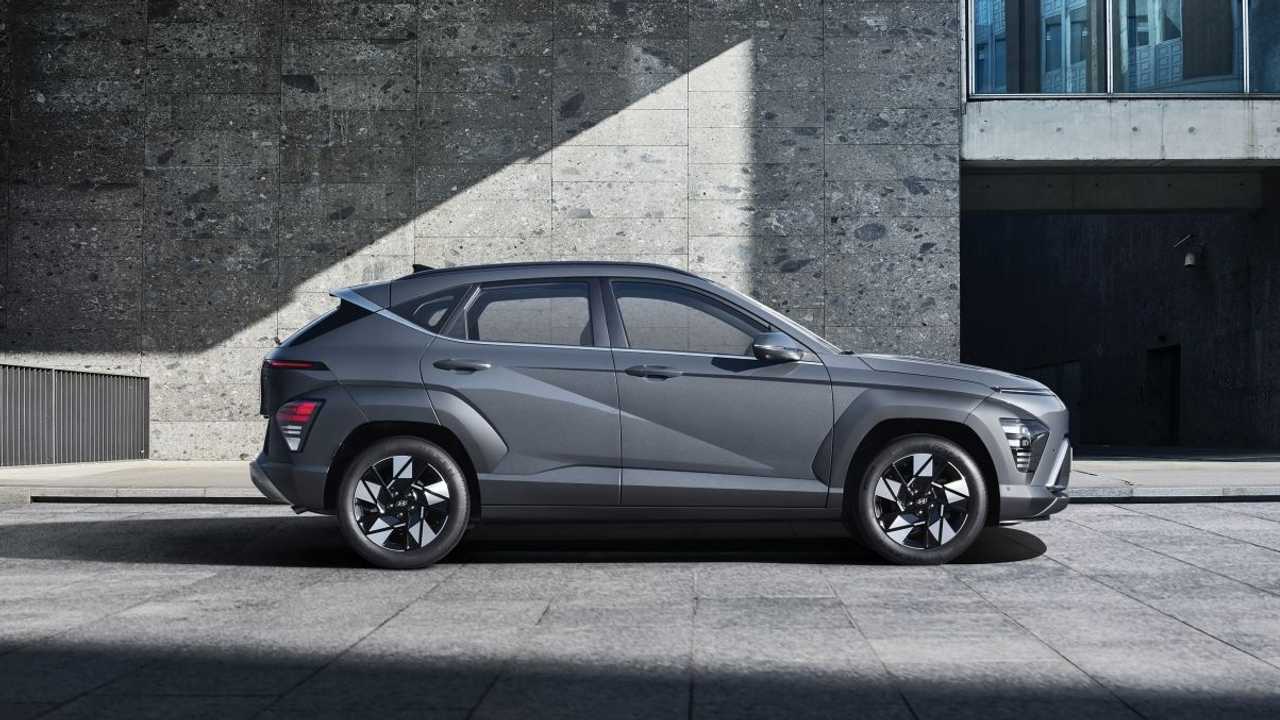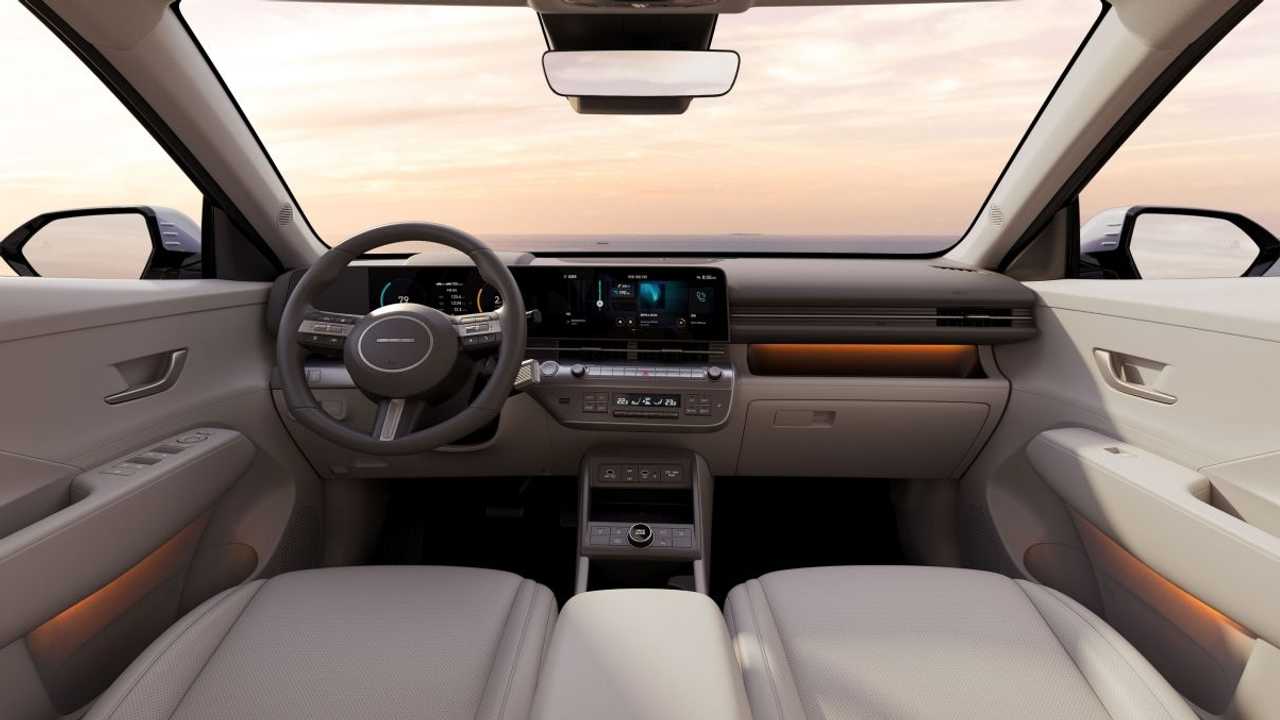Hyundai initially unveiled the second-generation Kona at the end of last year by sharing a few images without going into too much detail. Thankfully, an extended photo gallery is now available and comes along with additional technical specifications. We can finally take a good look inside and out to discover how much the crossover has changed in a relatively short timeframe since the original model went on sale less than six years ago.
Bigger than its predecessor, the 2024 Kona has had its wheelbase stretched by 60 millimeters (2.3 inches) to 2,660 mm (104.7 in). Its overall length has increased by 145 mm (5.7 in) to 4,350 mm (171.2 in) while its width is now at 1,825 mm (71.9 in). When fitted with 17-inch tires, the subcompact crossover stands at 1,580 mm (62.2 in) tall. These dimensions are for the ICE and hybrid models. That said, the EV’s proportions should be quite similar since it’ll use the same platform.
29 Photos
At home in South Korea, Hyundai intends to sell the new Kona with a naturally aspirated 2.0-liter gasoline engine making 147 horsepower and 180 Newton-meters (132 pound-feet) of torque delivered to the wheels via a CVT. Step up to the turbocharged 1.6-liter mill and you get 195 hp and 265 Nm (195 lb-ft) together with an eight-speed automatic.
As far as the hybrid is concerned, it uses a bespoke 1.6-liter unit that works together with an electric motor to provide “impressive acceleration and high efficiency.” Combined output has been rated at 139 hp and 265 Nm (195 lb-ft) sent to the road through a six-speed, dual-clutch automatic.
In terms of practicality, cargo volume with the rear seats folded is 723 liters (25.5 cubic feet) while the shift-by-wire gear selector has created a more spacious front compartment with enough space to store big bags. Hyundai also touts best-in-class shoulder room for rear passengers and a programmable electric tailgate allowing owners to choose the opening height and even the speed at which it opens and closes.


Memory seats, wireless charging, and OTA updates are supported, along with NFC tech to turn your smartphone or smartwatch into a digital key. The cabin should be quieter than before thanks to additional sound-deadening material, double-laminated sound-insulating glass on the windshield, thicker floor carpet, and sound-absorbing tires for the 19-inch wheels.
Even though the second-gen Kona now has a pair of 12.3-inch screens, you still get plenty of physical buttons on the center console to quickly access often-used functions. We’d argue this layout is the best of both worlds rather than having to cram everything into the infotainment or cluttering the dashboard with too many physical controls.
Hyundai plans to provide further information about the global model in March when we’ll also get to learn about the Kona EV.
Read the full article here


























